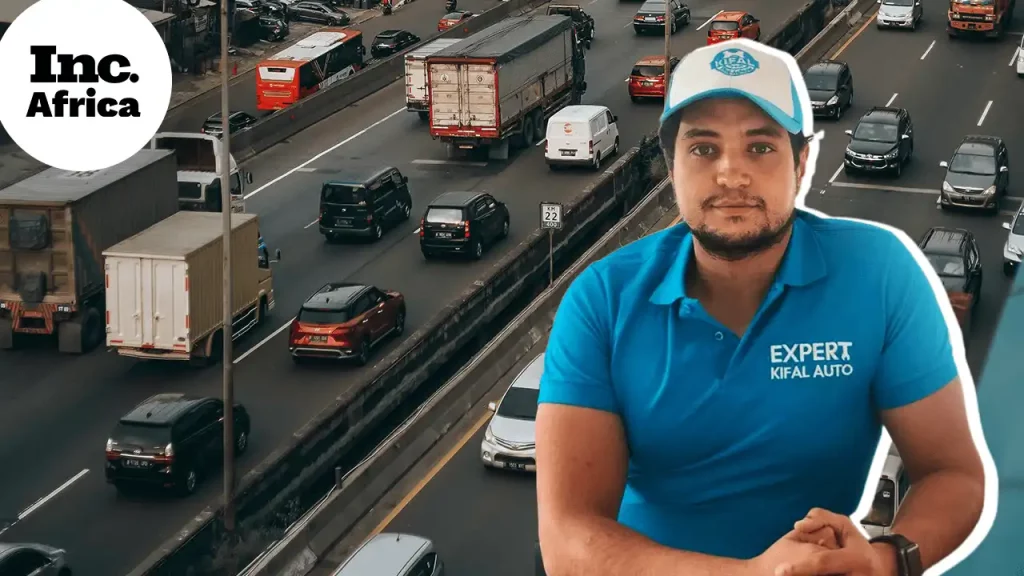“There was a great market opportunity to start KIFAL. The market is still growing even in a difficult economic context,” says KIFAL’s founder, Nizar Abdallaoui Maane. His company is all about boosting Morocco’s used-car market sustainably.
To accelerate this market, KIFAL offers a range of services that includes mechanical expertise, vehicle quotations, administrative procedures, and providing customers with a transparent relationship of trust.
But the real challenge is sustainability: reducing the carbon emissions from used cars. This is key to Morocco’s used car market growth because of the lack of public transport, explains Maane.
Sustainability can be achieved
All cars available on KIFAL’s site have had their carbon emissions tested. Each car’s carbon emission per kilometre is displayed on the platform and accessible to all customers.
“Regarding Moroccan environmental rules, all newer cars must protect the environment. Ten years ago, the rule that was applied was the Euro 4 emissions standards. But now all cars imported should be Euro 6 compliant. And next year, the set standard will be the Euro 7, which means less consumption and fewer carbon emissions,” Maane states.
A Euro standard sets the maximum level of exhaust a car can emit before it is ‘type approved’ and can be sold. Type approval is an essential practice that requires cars to meet certain safety and environmental requirements.
Quality control on all vehicles
KIFAL Auto addresses the concerns of potential used-car buyers, including the condition of the car, fair market value, maintenance and financing options. KIFAL plays an intermediary role between buyers and sellers.
To ensure that cars sold on the platform are in good condition, the company has more than 150 checkpoints inspected by professional automotive experts who recommend the best course of action for customers. These checkpoints include an electronic diagnosis, the car’s mileage and whether the car was previously damaged.
The platform’s valuation algorithms suggest a fair market value for vehicles. Based on this, customers can sell the car on the site or directly to KIFAL. The whole process is managed on the platform.
An integrated platform
“Nobody was aggregating all the value propositions, and we wanted to be the one-stop shop for used car buyers and sellers,” Maane says.
KIFAL Auto’s process for buying cars on the platform begins with a consultation where customers are presented with all the vehicles on sale and technical details. After that, an appointment is organised with the seller, and a KIFAL agent. Price negotiation and mutation follow.
The process of selling cars involves an inspection, followed by an appraisal and gathering the necessary information. Graduation, commercialisation and technical inspection of the vehicle follow. Customers can evaluate their vehicles online for free using the KIFAL Auto Coast to estimate the value of the vehicle.
Cars can be purchased in cash, by check, bank transfers or on credit. Understanding the financial burden cars carry, customers are afforded the opportunity of buying their cars in instalments as well.
Crucial takeaways
During his foray into the pre-owned automobile industry, Maane imparted invaluable observations gleaned from his experiences. These include:
1. You need to answer your customer’s needs first
2. The quality of whatever you are selling needs to be high
3. Physical contact with customers is critical in building trust
4. Be confident in the quality of what you are selling
5. Establish partnerships that will help grow your business
6. Believe in the potential of what you are doing
7. Building a company is very difficult
8. No one should be able to stop you from achieving your goals
9. Be humble, and
10. Stay close to your market.
Finally, Maane says entrepreneurs with aspirations to launch and expand their enterprise in Africa should understand how sustainability affects their sector. The founder suggests that entrepreneurs lean into helping to make their business sustainable according to agreed independent and global environmental standards.
Related Reading:
Why Ghana Relies Heavily On Used Cars by FESTIVAL GODWIN BOATENG & JACQUELINE M KLOPP
Vroom Takes Its Pitch to Buy Your Used Car to the Super Bowl by HANNAH HALL
The Nigerian Startup Bringing Clean Mobility to Africa by MICHAEL AKUCHIE
Why Africa’s Future Lies in Green Energy by BRIAN BAKKER
